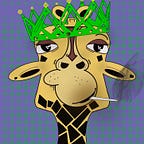Decentralized autonomous organizations (DAOs) are a function of culture and not the other way around. Culture is old, DAOs are new. Both terms are overused, probably.
When talking about big and amorphous terms, such as culture and DAOs, working definitions serve to provide the grounding and scaffolding upon and around which meaningful discussion can take place. Within the context of organizations, working definitions are especially important because they enable the consensus building necessary for productive action. After all, how can a group of individuals unite, coordinate, and progress if they can’t agree upon what exactly it is they’re talking about?
A commonly accepted and cited definition of culture was put forward by British anthropologist Edward Taylor in his 1871 Primitive Culture Volume 1. Taylor defines culture as, “that complex whole which includes knowledge, belief, art, morals, law, custom, and any other capabilities and habits acquired by man as a member of society.” Damn. That’s a lot. But it makes sense because culture is a lot, which is why it’s notoriously hard to define.
DAO can also be hard to define, but for different reasons. Unlike culture, which is fluid and changes shapes, DAO is hard to define because it’s still not clear exactly what shape it is. However, hard and objective definitions of DAO do exist. Wyoming’s Bill-38, signed into law in April 2022, summarizes a DAO as, “a limited liability company with special provisions allowing the company to be algorithmically run or managed (in whole or in part) through smart contracts executed by computers.” Damn. That’s specific. But it makes sense because the law is in the business of defining things specifically.
This act of defining “decentralized autonomous organization” is important because it is a cultural expression. It represents a dynamic cultural function (law) wherein humans (stewards of culture) debate and agree upon some working definition (consensus building) in order to some thing (progress).
A similar process goes on within DAOs everyday. Humans (stewards of community) propose ideas, discuss and debate them, and ultimately decide on what to do (build consensus) then do it (progress). DAOs leverage tools and platforms like Ethereum, Discord, Notion, and Snapshot to do this. As humans interact through these tools, the DAOs artifacts emerge — applications, content, NFTs, proposals, on-chain voting, and much more. Indeed, these are the cultural artifacts.
This begs a question, what function does culture play outside of human organizations? Can culture exist where humans do not? For example, does Chernobyl today, in its abandoned state, have culture? Can DAOs maintain autonomy independent of humans? If so, do these DAOs have culture? For example, if a DAO consists of self-executing, self-monitoring, and self-healing smart contracts with the need for human maintenance, does that DAO have culture?
So, when I hear, “the rise of DAO culture”, I think. I think about “gm”, “hi frens”, and “wagmi”. I think about DAOs being a new, tech-enabled take on and old, human tradition of cooperation. I think about a proliferation of organization, consensus building, and decision making that is managed mostly through algorithmically-powered, digital mediums. I think about what an exciting time to be a creature of culture and a doer of DAOs.
